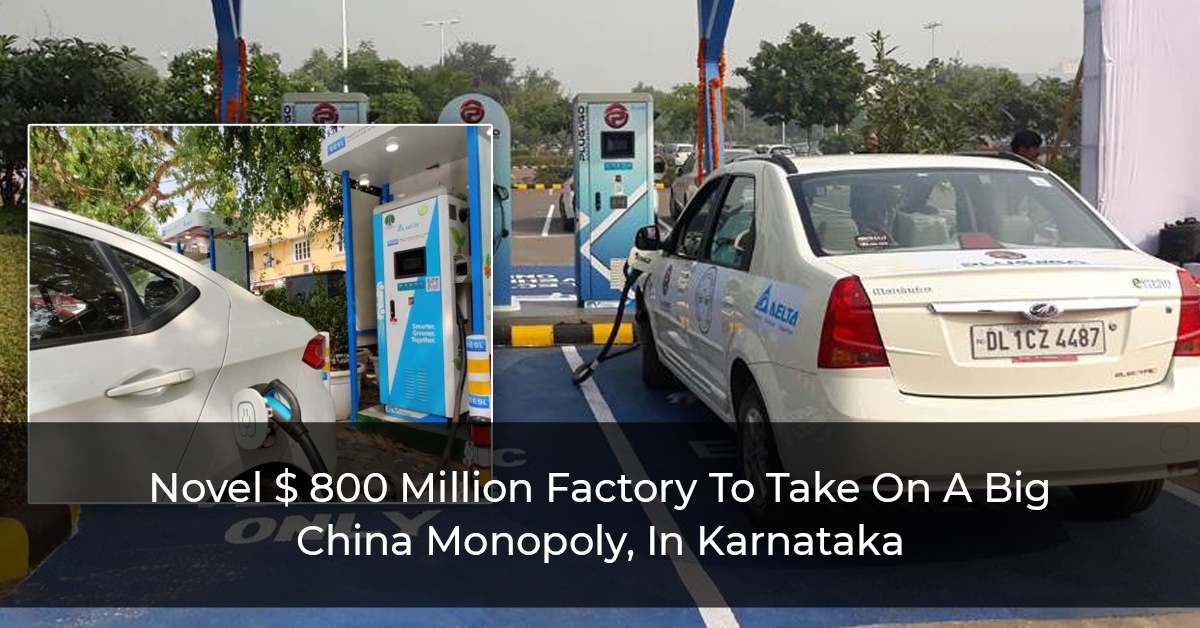Highlights:
- Son-in-law of India’s biggest steel tycoon is betting big on converting coal tar into graphite anodes
- The new factory in Karnataka is aiming to take on a big China monopoly by investing $ 807 million or ₹ 6,000 crore
- Epsilon plans to produce 100,000 tons of synthetic graphite anode by 2030
Vikram Handa who is the son-in-law of India’s biggest steel tycoon Sajjan Jindal (Managing Director of the JSW Group) is betting big on converting the coal tar into graphite anodes for the electric car batteries in a bid to test China’s monopoly in this sector.
Vikram Handa set up Epsilon Advanced Materials Pvt – the first manufacturer of lithium-ion battery parts in India – in the southern state of Karnataka in August, sourcing the raw material from the largest steel mill in the country that’s owned by his father-in-law, Sajjan Jindal.
Handa is planning to ₹ 6,000 crore ($ 807 million) which will help the company produce 1,00,000 tons of synthetic graphite anode by 2030, which is close to 10% of the estimated global demand.
Anode materials are the negative electrode in the lithium-ion batteries and account for 25% of a cell’s components. China has been producing more than 80% of the world’s supply of these anodes, and imports raw materials from countries including India.
By planning to produce anodes in India, Handa is aiming to transition the South Asian nation from a battery minerals centre to a battery materials hub.
Also Read: Railways Stop Sale Of Platform Tickets At Mumbai CSMT And 5 Other Stations
India has great scope for production of Electric Vehicles (EV) batteries locally as it has access to the raw materials, a $20 billion manufacturing incentive plan, a proposed battery materials policy and improving prospects for demand, Handa, 40, said.
He said, “I’m quite optimistic on the outlook for India’s battery space over the next decade,” and added, “It’s going to take another two to three years for really serious money to go into this space but after, you’ll see a lot of money pouring into it. India is such a big auto market that one cannot ignore it.”
Many Indian automakers have already started manufacturing EVs while several others have announced their plans to enter EV segment. The latest is Bhavish Aggarwal’s Ola Electric Mobility Pvt.
Aggarwal has said that he is expecting his startup will be making 15% of the world’s e-scooters by the summer of 2022.
Then there is also Tesla Inc., which has picked Karnataka, the same state where Epsilon has its factory, for its first plant, according to the state’s chief minister.
One of the chief motivator for this pivot toward the new-energy vehicles is cleaning up India’s choking toxic air. However, the adoption of EVs has been slow, crippled by a lack of charging infrastructure and technology, higher costs of the cars and a delayed flow of funds into the development and production of batteries and other technologies.
As of now, India has some battery assembly plants but no cell manufacturers. EVs account for about 5% of China’s annual car sales, according to BloombergNEF, compared to less than 1% in India.
Handa said, “You are so dependent on cells from China that your cost structure can never really come down,”
India has the expertise which is needed to make the cells, and it has plentiful raw materials including aluminium, copper, electrolytes and nickel, the key elements for batteries, he said, adding that “while everybody keeps talking about lithium, it’s a very small part of the whole raw material that goes into the cell.”
Also Read: Punjab Agrees To Implement Direct Bank Transfer Of MSP For Farmers From April 10
The parent company of Epsilon processes coal tar, mainly sourced from JSW Steel Ltd., into thick black pellets or liquid which are used in everything from automobile tires to fuels and paints.
The switch to battery materials would require the company to further process the coal tar. Additionally, Epsilon has also managed to secure a patent for the furnace design and expects to file another three patents later this year.
As of now, the company is exporting precursor anode material to China, Japan and Europe.
Handa’s ambitions are also getting a push from Prime Minister Narendra Modi’s goal to lure manufacturers from China. India’s Transport Minister Nitin Gadkari, in March, promised to announce a comprehensive battery policy “soon”.
Epsilon has also been in talks with close to eight firms which are planning to bid under the government’s project to supply the anode, Handa said.
With all this, that domestic supply will become vital with EV sales forecast to overtake gas guzzlers in India by the end of the decade as prices become more aligned and infrastructure and technology improve, according to Mahindra & Mahindra Ltd., one of the country’s biggest automakers.
Handa said, “If adoption of EVs picks up in India and tomorrow Tesla comes and sets up a factory, then a big chunk of the anodes will be utilized in the domestic market.
“We’re confident that the Indian market will develop and we will have first mover advantage.”


